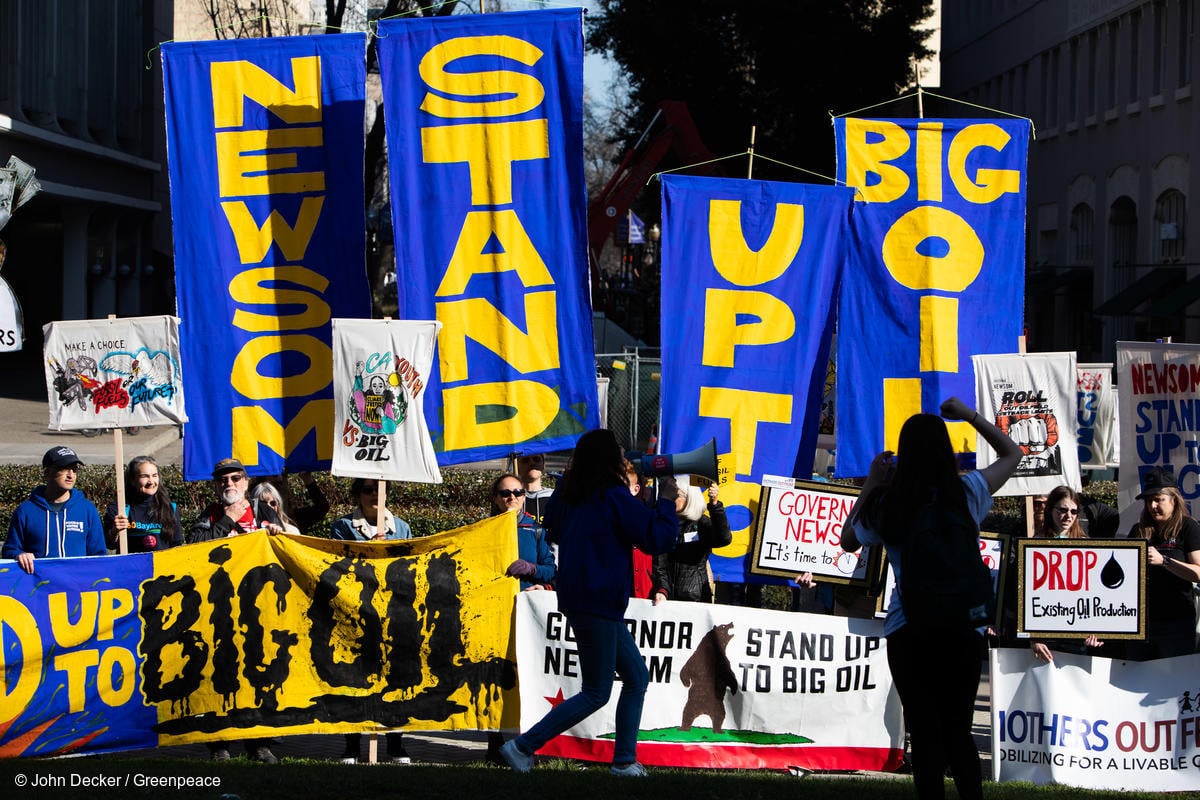
The California climate emergency
We must stop drilling for oil and gas if we want to maintain a livable planet. Unfortunately, greedy oil and gas companies continue to extract every last drop, putting the planet on a dangerous course to render our beloved California unlivable.
The science is clear
As one of the world’s largest economies and a major oil and gas producer, California has an important role to play in building a future beyond fossil fuels and showing the rest of the world that a sustainable clean energy future is possible.
That’s why Greenpeace USA’s California Campaign works alongside frontline communities, local activists, like-minded organizations, and elected officials to:
- Educate and mobilize tens of thousands of Californians around the climate emergency;
- Bring attention to wildfires, droughts, heat, and other extreme weather events fueled by the climate crisis;
- Replace broken political systems that polluters exploit with people-powered democracy that works for all;
- Uplift a just transition for oil workers and communities that ensure no one is left behind on the pathway to a clean energy economy; and
- Demand politicians use their power to maintain health buffer zones between toxic drilling and where people live, work, and play as an important step on the way to a complete phase out of fossil fuel production in the state.
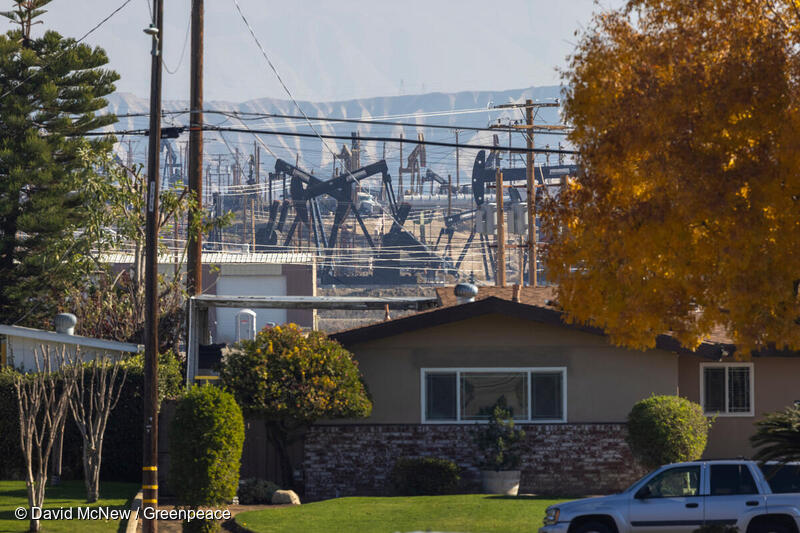
As a direct result of this work, California Governor Gavin Newsom has already taken some major steps to move California off fossil fuels, including:
- Ending fracking — an oil and gas extraction technique that endangered our communities, our water, and our future — throughout the state;
- Announcing that the state of California was suing the five biggest oil companies for their decades of lies and damage;
- Signing into law AB 421 to bring clearer voting language and greater transparency at the ballot box;
- Passing a price gouging penalty on oil refineries that attempt to rip off Californians at the pump;
- Signing into law SB 1137, a bill that prevents new drilling and rework permits within 3,200 feet of where people live, work, and play;
- Signing a state budget that included a $40 million fund that could be available for direct payments to fossil fuel workers for wage replacement and healthcare; and
- Announcing a goal to phase out oil production by no later than 2045, with a dramatic decline in new drilling permits issued in the last two years.
California is ground-zero for climate change and while these steps show commitment and progress, the crisis we face demands more. We must use this momentum to boldly and swiftly do what is needed to protect our planet and our future. That’s why we’re building people power in California — to:
Ensure California has a future without the toxic practice of neighborhood oil drilling, on the way towards a full phase out of fossil fuels across the state
Move elected officials to ensure that the fossil fuel industry addresses its toxic legacy of harm through legislative, regulatory, and compensatory actions
Demand Chevron and other oil companies leave the state of California, but not before supporting a just transition for fossil fuel workers and communities and paying for the damage that decades of extraction has caused
Highlight the positive impacts of a just transition away from oil, gas, and coal for workers and communities.
-

New Analysis of Five Major U.S. LNG Export Projects Finds Every One Fails the “Climate Test”
The new analysis shows that U.S. LNG export projects displace renewable energy and drive up emissions – making them incompatible with a livable climate
-

The ‘Big, Beautiful’ Blunder: a bill that will live in infamy
WASHINGTON, D.C. (July 1, 2025)—In response to the passage of the “Big Beautiful Bill” in the United States Senate, Greenpeace USA Deputy Climate Program Director, John Noël, said: “This is…
-

Wrecking the future: the Trump war on the ocean, climate, and communities
Wrecking the future: The Trump war on the ocean, climate, and communities. Dismantling climate and oceans protections.
-
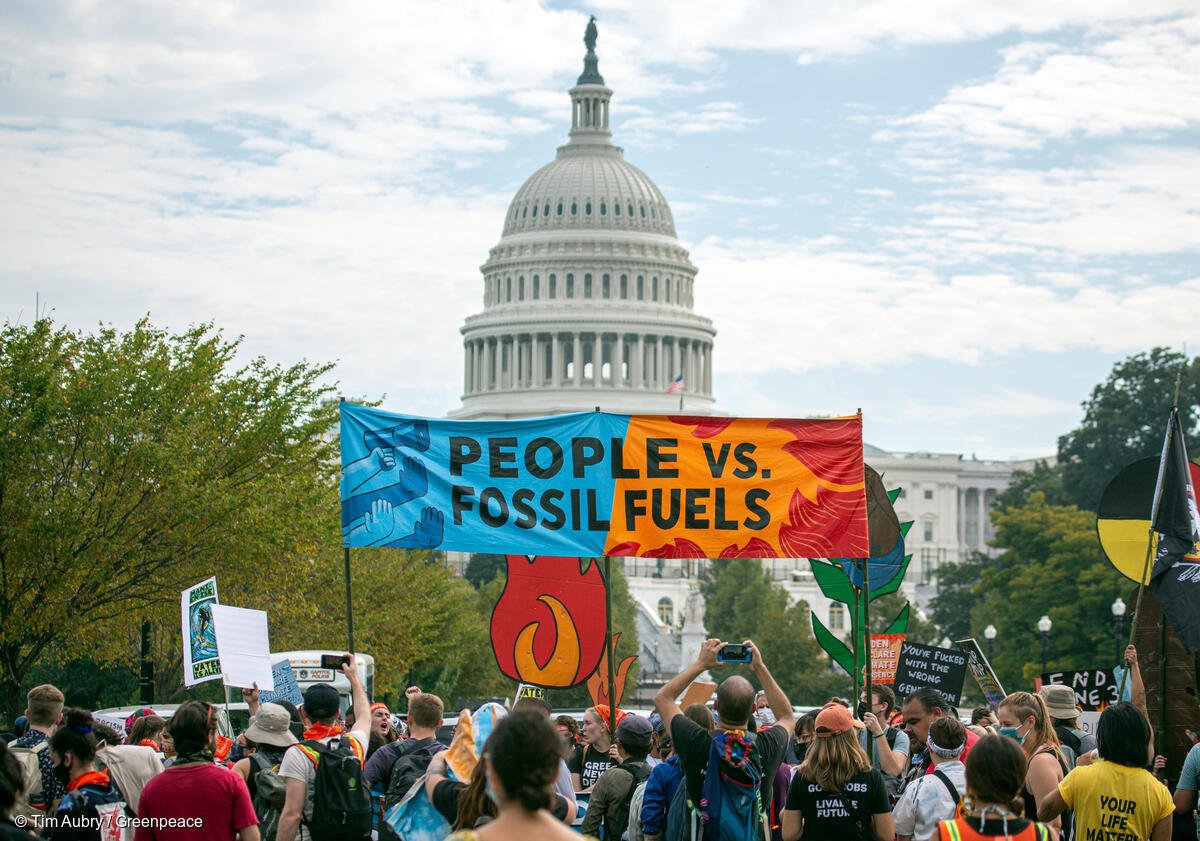
Big Oil Money Looms Large in Competitive Elections
During this election cycle, 20 oil & gas companies and industry trade associations contributed more than $52 million to right-wing super PACs and party fundraising committees, and more than $4…
-
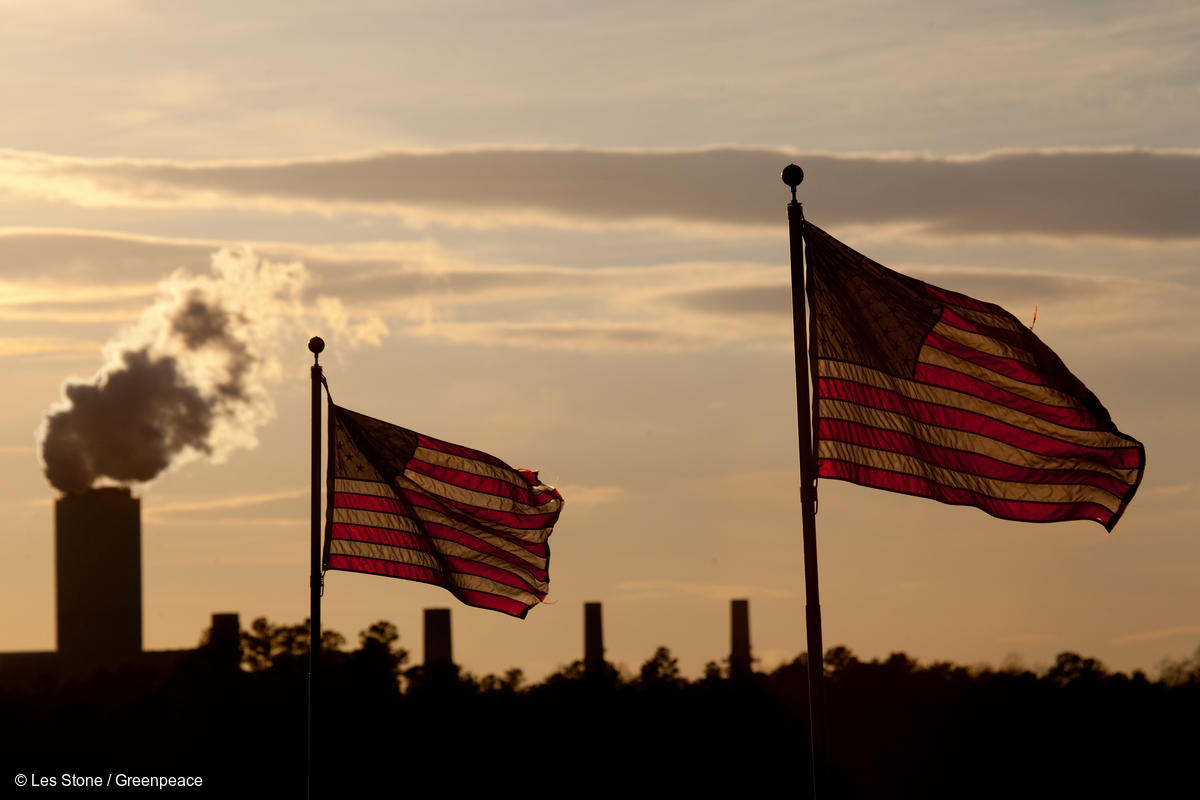
Fossil Fuel Racism: How phasing out oil, gas, and coal can protect communities
Fossil fuels — coal, oil, and gas — lie at the heart of the crises we face, including public health, racial injustice, and climate change. This report synthesizes existing research and provides new analysis that finds that the fossil fuel industry contributes to public health harms that kill hundreds of thousands of people in the…
-
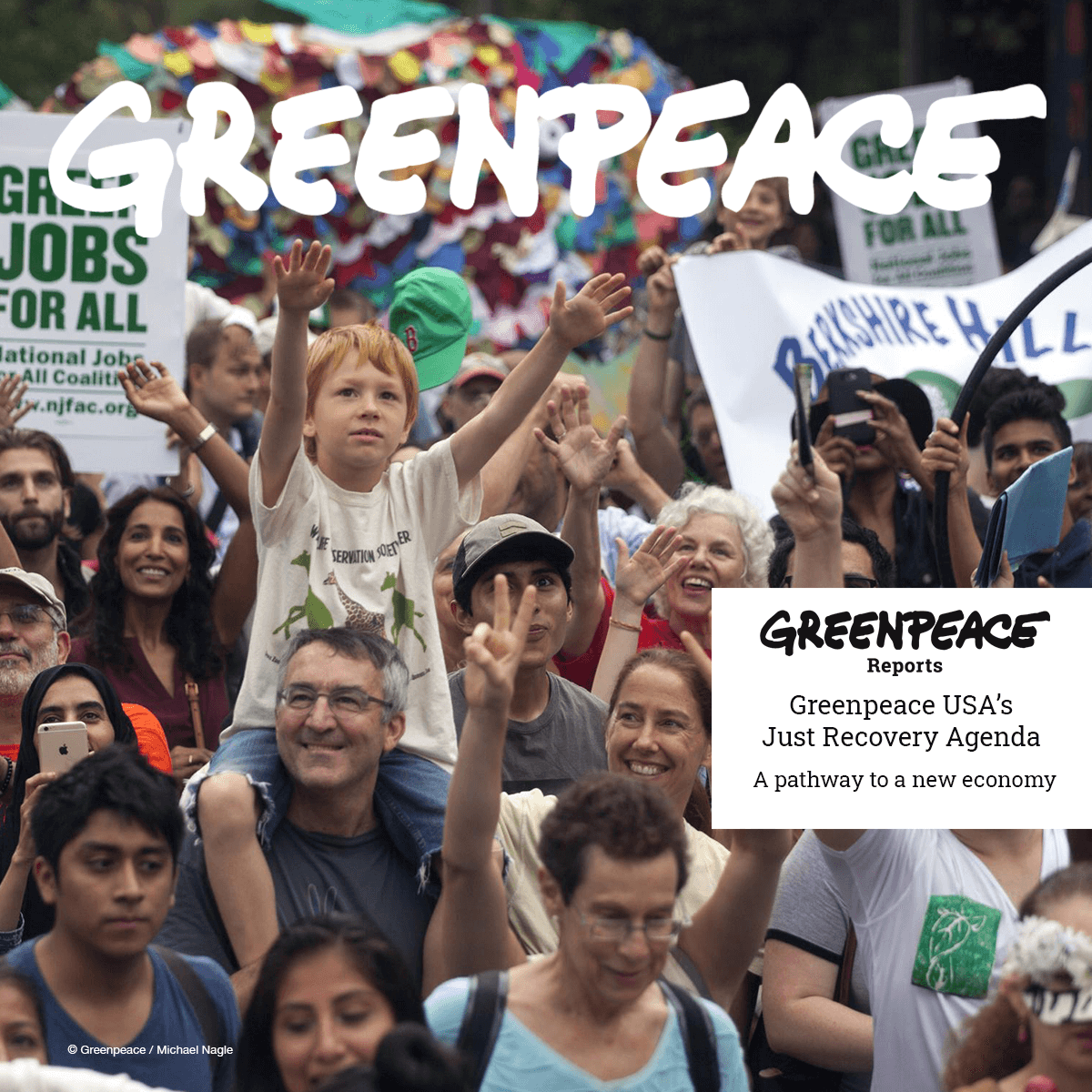
Greenpeace USA’s just recovery agenda
We envision a world where everyone has a good life, where our fundamental needs are met, and where people everywhere have what they need to thrive.
-
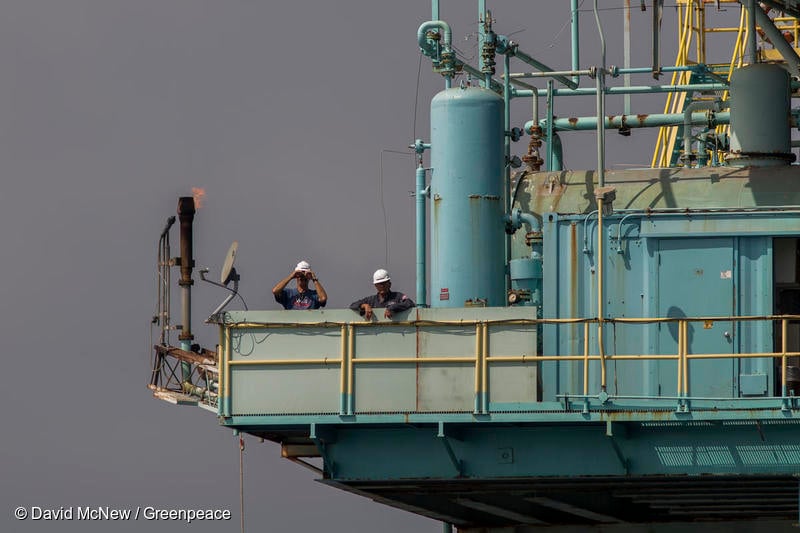
Policy Briefing: Protecting Energy Workers and Communities in a Just COVID-19 Recovery
A new policy briefing from Greenpeace USA calls on Congress to create a national Worker and Community Protection Fund (WCPF) to support fossil fuel workers, their families, and impacted communities in…
-
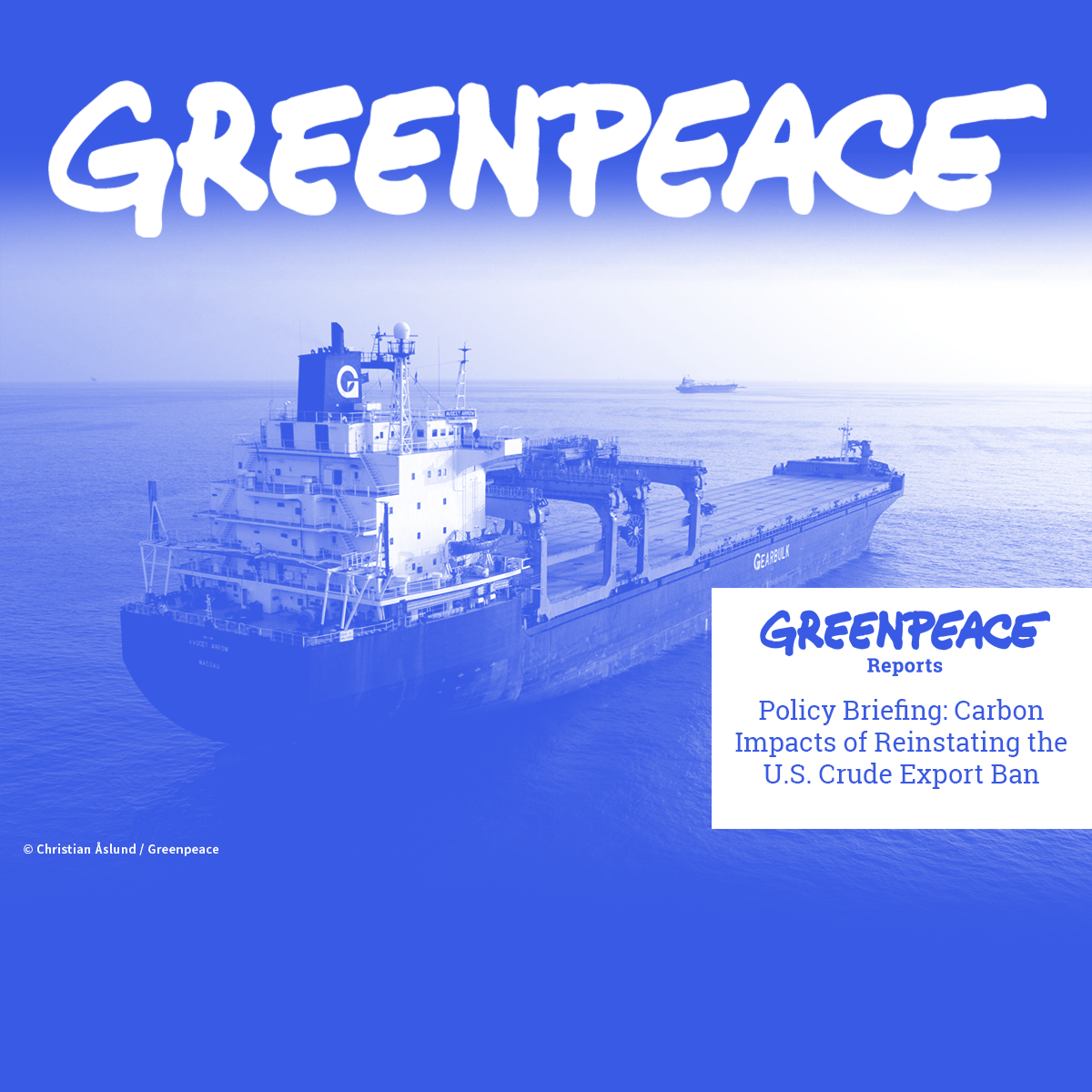
Greenpeace Report: Carbon Impacts of Reinstating the U.S. Crude Export Ban
A policy briefing from Greenpeace USA and Oil Change International shows that reinstating the U.S. crude oil export ban could reduce global emissions by the equivalent of closing 19 to 42 coal plants.
-

Third Financial Quarter Coal Market Report: Risks to U.S. Coal Mining and Export Proposals (October 2015)
All prices are in USD unless otherwise noted. The information in the report is not financial advice, investment advice, trading advice or any other advice. This report was prepared by: Greenpeace, Sierra…
